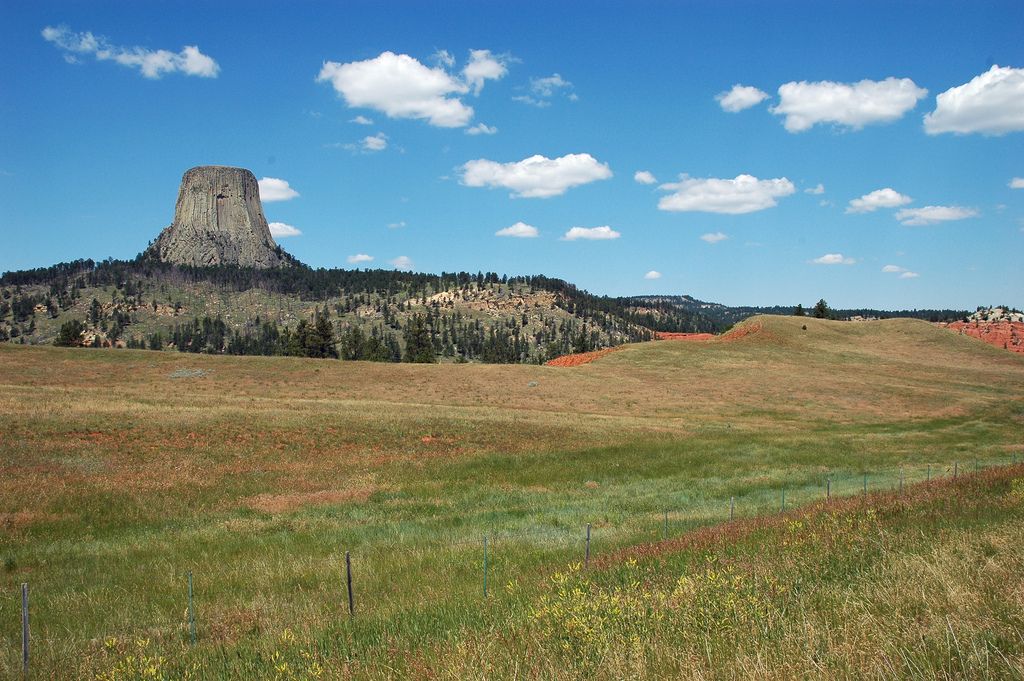Views expressed in opinion columns are the author’s own.
Thanksgiving is a time for reflection: on family, on good fortune — and on history, both personal and communal. The Thanksgiving story is as essential to our national identity as the story of Paul Revere or George Washington and his cherry tree; it’s especially notable for the rosy picture it paints of the relationship between early English colonists and native peoples.
While something akin to the events of legend might’ve taken place, the subsequent 400-odd years of history between Native Americans and settlers that have transpired since have been much darker, bloodier and more morally problematic — specifically, the acts and processes of seizing native land. In the spirit of reflection, I’d like to consider the present-day implications of that history.
The United States is sometimes referred to — at least by those who frequent Woke Twitter — as “stolen land,” which is a term worth unpacking. It has two implications: that Americans acquired the land in question illegitimately (and/or immorally), and that the land still belongs in some deep sense to native peoples.
The first implication is obviously true. The history of land transfer from native tribes to the U.S. is marked by murder, deceit and genocide. While some native lands were “sold” to colonists, such transactions were at best iniquitous and at worst blatantly coerced. Whichever way you look at it, the ways in which the U.S. acquired native lands were clearly and profoundly immoral.
The second implication is the much more interesting one. For starters, land being “stolen” means it must have been owned in the first place, and you might wonder what decides who owns a piece of land — “owns” here being used in a moral rather than legal sense.
There are a few compelling and mutually intelligible answers to this question. You might think ownership of land is determined by, among other things: who first occupied it for some nontrivial amount of time; who currently occupies it; who tends to/cares for/properly respects it; who has the most legitimate spiritual or cultural connection to it.
It’s not clear which of these is true, but it is clear that all describe the relationship native peoples had with U.S. land before the U.S. took it. So to the extent you think it is possible for land to be owned, it seems that native peoples were the legitimate owners of America.
To what extent this is still the case? It seems like certain sorts of rights of ownership fade with ontological distance. Suppose I presented you with incontrovertible proof that your great-great-great-grandfather stole from my great-great-great-grandmother an amount of money worth $20 today. You would rightfully be a little hesitant to return that $20 to me. Why is this?
First, the property in question is of fairly trivial value, both instrumental and sentimental. My life would not be very much better if I had the $20, so its moral significance to me is fairly low. Second, there is little reason to believe that I would own the property in question if the theft had not occurred. Money comes and goes, and is divided, donated, excluded from wills and manipulated in so many ways through time that the chance of me being exactly $20 richer in a world where the theft did not occur is miniscule.
Contrast this example with the case of stolen land. Unlike the $20, the land stolen from native peoples was of incalculable instrumental and spiritual value; this alone makes the tie of ownership significantly stronger. Perhaps even more important is the fact that today’s Native American tribes would almost certainly still own the same land had it not been taken from them. It thus seems like native peoples still have the moral right to the land that makes up the U.S.
Of course, the situation is complicated by the fact that lots of people currently live on the land in question and that displacing them would raise a whole host of moral problems. But there is plenty of land that could conceivably be returned to native peoples without causing any more moral harm, and the conclusion of the preceding argument seems to necessitate such a return.
At an absolute minimum, we must refrain from further stealing from native peoples — as the Trump administration recently set out to do — and should take every opportunity to acknowledge the problematic history of the land we tend to take for granted.
Joey Marcellino is a senior jazz saxophone, physics and philosophy major. He can be reached at fmarcel1@terpmail.umd.edu.



